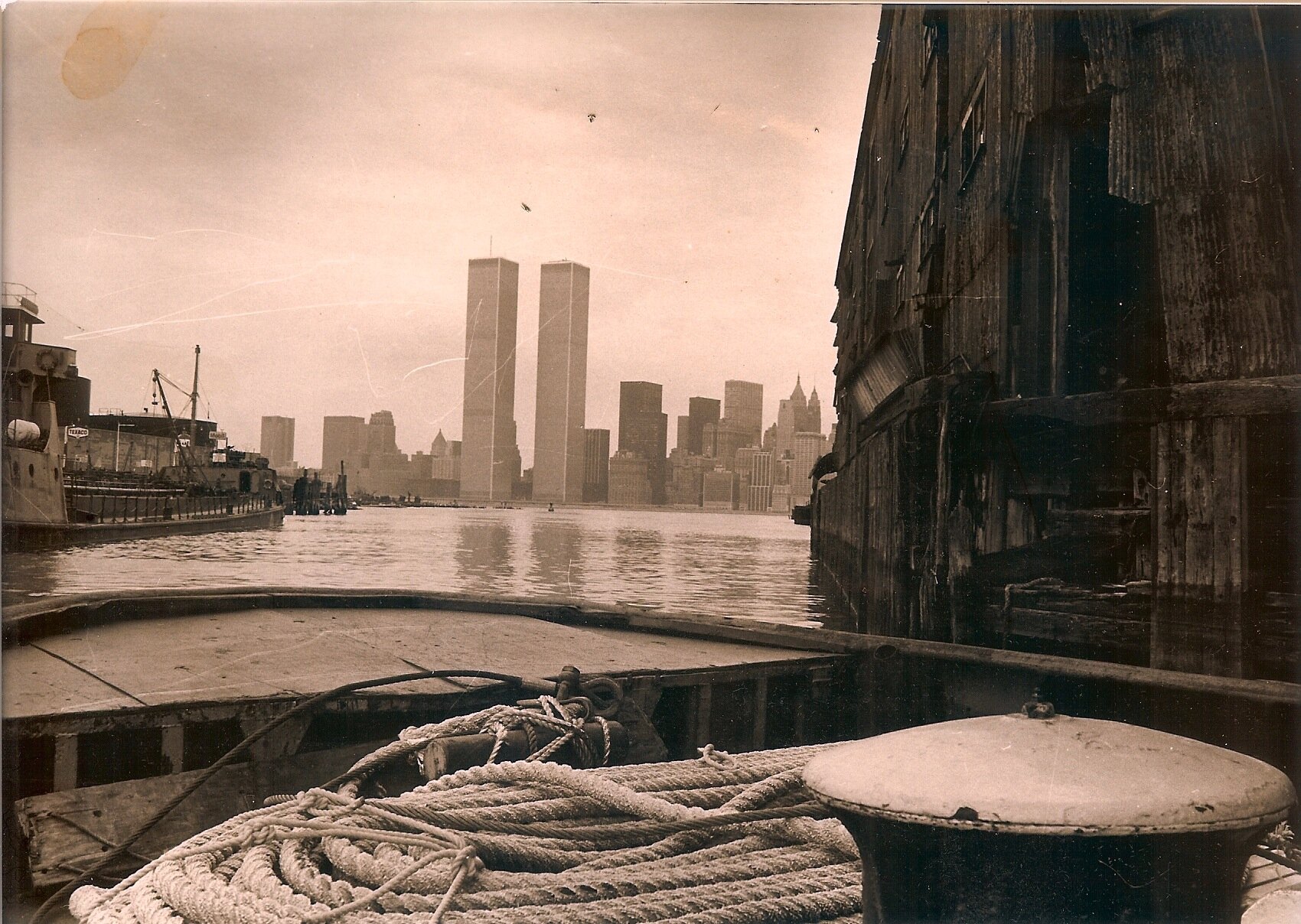9/11 CHANGED EVERYTHING – and Nothing
On September 11, 2001 almost everything –
On September 11, 2001 almost everything – meals, laundry, garden, work– everything beyond search and rescue suddenly seemed irrelevant. I sat riveted, torn between joining the volunteers and convincing everyone I love to move to South Dakota. I called the blood bank and donated to the Red Cross. Finally, after two days of nearly immobilizing grief, I turned off the TV.
Feeling vaguely self-indulgent and disloyal – as though vicariously sharing suffering somehow helps alleviate it – I nonetheless pulled on garden gloves and stepped outside. The rich, grapey fragrance of the fall-blooming clematis mingled in the air with the more delicate sweetness of the end-of-season-phlox. A chipmunk scurried up the buttonwood tree. Birds, calling joyfully, soared from maples and tulip poplars to heavy-laden apple trees, whose branches are bent low with fruit, a bounty I needed to preserve even while I struggled to process the events of the past two days.
Like most of us, I envisioned a different kind of autumn. I planned to reassess personal things – the changing chapters in my own life, the next stage in my children’s. The year had been eventful in our family. My husband’s accident six months before took over my life and my work. While he was mending well, he was not able to climb aboard the ocean-going tug on which he was captain in hurricane season and was driving me – God bless him - NUTS. Our daughter was making the 60-mile daily commute to school and back alone in a 15-year-old car without a cell phone. And in August, Matt, our firstborn, had moved to a college ten miles from the Pentagon – a big step away from us into a world that suddenly felt exponentially more uncertain than it did only a few months before.
So, on Thursday, to stem rising panic, I turned off the TV, grabbed the basket of garden tools and went out to the wildlife thicket on the east side of the yard. Neglected in favor of more immediate obligations over the prior several weeks, it was a tangle of dead currant canes, wild geranium, wiregrass, pokeweed, lamb’s quarters, and plantain. The huge Scotch broom, which that spring was been a mass of tiny blossoms that collectively resembled a bright yellow bonfire was inexplicably dead, its whip-thin branches dried to ashen brown. The apricot verbena plants I put in near the pear tree were desiccated clumps. The early lilies were engulfed and the Sheffield mums were almost completely obscured by timothy grass.
In the shade of the black walnut tree, I knelt down and started to weed as a kind of prayerful meditation. The ground was surprisingly friable, easily yielding up plant and root together. I yanked honeysuckle, stray vetch and invasive lemon balm, clipped back dead currant branches, pruned the elderberrys, and dug spent lily bulbs. The space began to look better, more tended. Drinking in the scent of open earth as I pushed over the defunct Scotch broom and hauled it away, I began to feel better. I could breathe, start to see beyond the present. And in that moment, I flashed on Voltaire’s Candide, the 18th century story of a young man’s initiation into a world filled with senseless human cruelty and destruction. Though it’s two centuries old, the story seemed oddly current. Unshaken in his blind optimism by a bizarre series of cruel and destructive events, Candide’s mentor, Dr. Pangloss, insists to the end that we live in the best of all possible worlds. But Candide, demoralized by one injustice after another, retreats to the country, escaping the insanity of the world, opting instead to productively tend his garden.
Feeling a little like Candide, I worked my way around the bed. I rooted out the invaders and began to imagine a more civilized space – Virginia bluebells (Mertensia) beneath the walnut tree, and a tall stand of fragrant oriental lilies behind the birdbath. By the time I reached the Buddleia, whose gorgeous pale lavender panicles swarmed with butterflies – Nature’s gift – I’d not only unearthed what beauty remained there, but envisioned it renewed, enhanced.
Gardeners of all stripes dug in during the week of 9/11, trying to take control of our own little corners of the earth. Nurturing beauty is not simply therapeutic. It’s an act of defiance, a way to nourish continuity – hope – and to restore faith. It may not seem like much of a contribution when so much else is needed, but it helps.
It’s not retreat. Unlike Candide, most of us can’t cloister ourselves. I know I can’t. My children and those I love most are out of my control in what feels most of the time like an incredibly scary world. My heart is out there with them, unprotected. Whether or not this is the best of all possible worlds is not the point. It’s the one we’ve got right now. I tend what I can of it and pray that, having lived with beauty, hope and compassion, my children and many more like them will plant it and tend it well in years to come.
Nancy Taylor Robson first published in The Baltimore Sun Sept 2001



